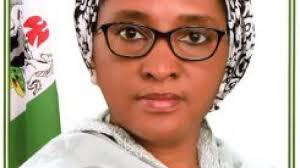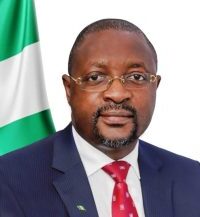Nigeria’s debt profile: Time to prioritise govt spending

Oil price volatility, OPEC production cut, and falling revenue are all conspiring to increase Nigeria’s debt burden; BENJAMIN UMUTEME reports.
As the oil market volatility continues to upstage forecasts and projections for Nigeria’s fiscal and monetary authorities, it has become obvious that the nation’s revenue inflow which has dipped as a result of the coronavirus pandemic has further reduced the ability to meet financial obligations.
What has always been seen as an albatross by many Nigerians has repeatedly shown that a mono-economy without a well cut out financial management system was bound to run into troubled waters.
For finance analyst Linus Agbo, issues of foreign debts are both external and internal in nature. Internally, the high importation rates, African huge dependence on foreign aid, and high rate of corruption by government officials induced borrowing. Externally, the global economic crisis, the changing oil price in the international market, among others, initiated Nigeria’s debts.
Historical perspective
Nigerian foreign indebtedness started during the military regime of Gen. Olusegun Obasanjo in 1977. The government first borrowed N600 million ($1billion) which was followed with another huge borrowing of N734 million ($1.456 billion) in 1978. Thereafter, there was borrowing by both the federal and state governments which later aggravated the Nigerian debt problem.
Nigeria’s debt overhang which was less than one billion dollar in 1970 had by the second half of 1980s deteriorated seriously due to persistence inability of the country to meet its external debt service obligations. The external debt stock, which was about $9 billion in 1980, grew to nearly $19 billion by 1985. By 2001, the debt stock as percentages of total export and Gross National Product (GNP) was 14 per cent and 83 per cent respectively. The country’s total external debt stood at N10.6 trillion as at December, 2016.
Data from the Nigeria’s debt management office showed that in 2010 Nigeria’s debt was $35 billion, $41 billion in 2011, $48 billion in 2012, $64 billion in 2013, $67.7 billion in 2014, $63.8 billion in 2015, $57.8 billion in 2016, $70 billion in 2017 and $73 billion in 2018.
Worrying debt levels
While the debt total public debt stock may be relatively low vis-à-vis it’s GDP, it is however, pertinent to note that increased funding requirements in terms of bridging infrastructure gap amongst others will lead to further borrowing.
A professor in the department of economics at the University of Lagos, Olufemi Saibu, expressed worry that the borrowed funds if not used for specific projects would create new sets of challenges for the country.
“The debt profile is high, but it’s not in the red lines yet. The problem is that the debt cannot continue to increase; there must be a check on it. And the question is, what are they using the debt for? The quality of projects, productivity and impact of the projects are what matters.”
Many more Nigerians still worry that federal government’s debt might be higher than figures out by the DMO, especially with drawdown from special purpose funds. These are not recorded as part of the overall national debt. In the views of Lead Research at BudgiT, Atiku Samuel, “What you see at the Debt Management Office is just a fraction of Nigeria’s debt. There are special accounts that are dedicated by law, but unfortunately the federal government has been taking funds from (them) to meet its budgetary obligations.”
Samuel said the government had been drawing from “funds like the ecological fund, even borrowing from the excess crude account. Another big component is debt to contractors and the overdrafts it takes from the Central Bank – which is now about N4 trillion – and there are also judgement debts.”
Similarly, the co-convener of Take Back Nigeria (TBN), Jaye Gaskia told our correspondent that the rate at which the federal government was borrowing “was unsustainable.”
Jaye said borrowing in itself was not a bad thing so far it is utilised for that purpose. However, he pointed out that with dwindling inflow from our main source of revenue (oil), sustaining the borrowing would become a huge burden in the country.
“How are we going to pay back with the volatility of the oil market?”
‘Mounting debts not a problem’
Nigeria’s fiscal authorities as exemplified by its Minister of Finance, Budget and National Planning, Mrs. Zainab Ahmed, are still not convinced that the country’s debt which stood at N24.9 trillion is gradually becoming a big challenge.
On August 27, 2019, Mrs. Ahmed told journalists after a meeting with the Minister of State for Budget that experts were being insensitive concerning the country’s debt situation. She said despite the misgivings amongst experts over Nigeria’s rising debt profile, the country was in fact confronted with a revenue challenge.
“There is a lot of insensitivity around the level of our debt. I want to restate that our debt is not too high; what we have is a revenue problem. Our debt is still very much within a reasonable fiscal limit. In fact, amongst our comparative countries, we are the least in terms of borrowing,” she said.
On December 6, of the same year, in faraway Dakar, Senegal, she reiterated that Nigeria does not have a debt problem.
Problem looms
Analysts say Nigeria is at its wits end concerning the mounting debts. Many say the rate at which the country is borrowing, it will be difficult to repay the loans.
In this 2020 alone, April to be precise, the National Assembly approved N850 billion loans for the federal government. Not done, it went ahead to approved another $22.7 billion in April. This is after Nigeria got $3.4 billion from the International Monetary Fund/World Bank as part of its covid-19 support to various countries around the globe.
With revenue depleting due partly to the coronavirus pandemic and the oil market volatility added to OPEC production cut carried out to shore up oil price, the country has further been boxed into a tight corner.
Without doubts, Uche Uwaleke, capital market and finance professor at the Nasarawa State University, told Blueprint Weekend that “Nigeria’s rising public debt is becoming a huge burden and a cog in the wheels of the nation’s development.”
The former Imo state finance commissioner also said at N28.6 trillion as of March 2020, according to the NBS, it is nearly three times the size of the country’s annual budget.
“More worrisome is the debt service to revenue ratio which spiked to about 90% in the first quarter of 2020. This disturbing situation has negative implications for the country’s economic growth as the high debt service ratio crowds out expenditure on critical projects. The situation makes the country more vulnerable to external shocks, raises country risk and consequently attracts downgrades for Nigeria from global Rating Services such as Fitch and Moody’s with grave implications for investment flows.”
In the same vein, an economist, Ebere Onwudiwe, speaking at Channelstv programme Sunrise Daily, monitored by our correspondent in Abuja, noted that borrowing was not bad, but with the amount of debt being raked up presently by the federal government it would be impossible to repay the loan as the country does not have the capacity.
According to him, “We should be careful in loading up debts as the country was on the margins of a debt crisis.”
Also speaking, a former director-general, Abuja Chamber of Commerce and Industry, Chijiok Ekechukwu, said the rising debt portended danger for the economy.
He said, “It is expected that the debt profile of the country would rise considering the fact that we have a deficit budget and even the deficit side of the budget was not met in the last budget year.
“The government would need to continue to borrow to meet the increased size of the deficit. Of course, the borrowing portends danger for the economy because our debt profile is rising and we do not know when we are going to scale it down.”
Way out
Ekechekwu suggested that rather than continue to rely on borrowing to finance its activities, the federal government should adopt other sources of funding the infrastructure needs of the country such as concessioning, privatisation, and Public Private Partnership arrangement.
Similarly, the Head of Financial Derivatives Ltd., Rewane Bismark, said what the debts are used for would determine whether they would help or hurt the nation’s economy.
He said, “If the debts are there, and you have roads, rail tracks and power stations; then there is no problem because the power generated. For example, will give you output that you will use to service the debt. The question we need to ask is: what were the debts used to do and are the debts increasing productivity in the country?”
For Ike Brasson, a policy analyst, except Nigeria’s fiscal authorities put its financial house in order, it was bound to run into a financial crisis “in a few years’ time.”
“In the long-run, the President Muhammadu Buhari government must make efforts to diversify the country’s economy and take steps to widen and increase the revenue base, and it should look to settle its major contingent liabilities sooner rather than later.
“The country could also use help from the IMF to implement fiscal reform and give it the political cover to make changes that may inflict some political pain in the short run, but are necessary for it to grow and achieve some sort of long-term budget solvency. Without quick action, the country may be one recession away from a sovereign debt crisis,” he said.
Uwaleke said further that in relation to the size of the economy, the public debt stock ordinarily should not be of concern since the debt to GDP ratio is still within international thresholds.
“I think the country has reached a point where a stop is put to external borrowing from commercial sources, especially against the backdrop of currency risks. It is also time to prioritise government spending in a way that ensures that only self-liquidating projects are funded with borrowed funds.”
Blueprint.ng





